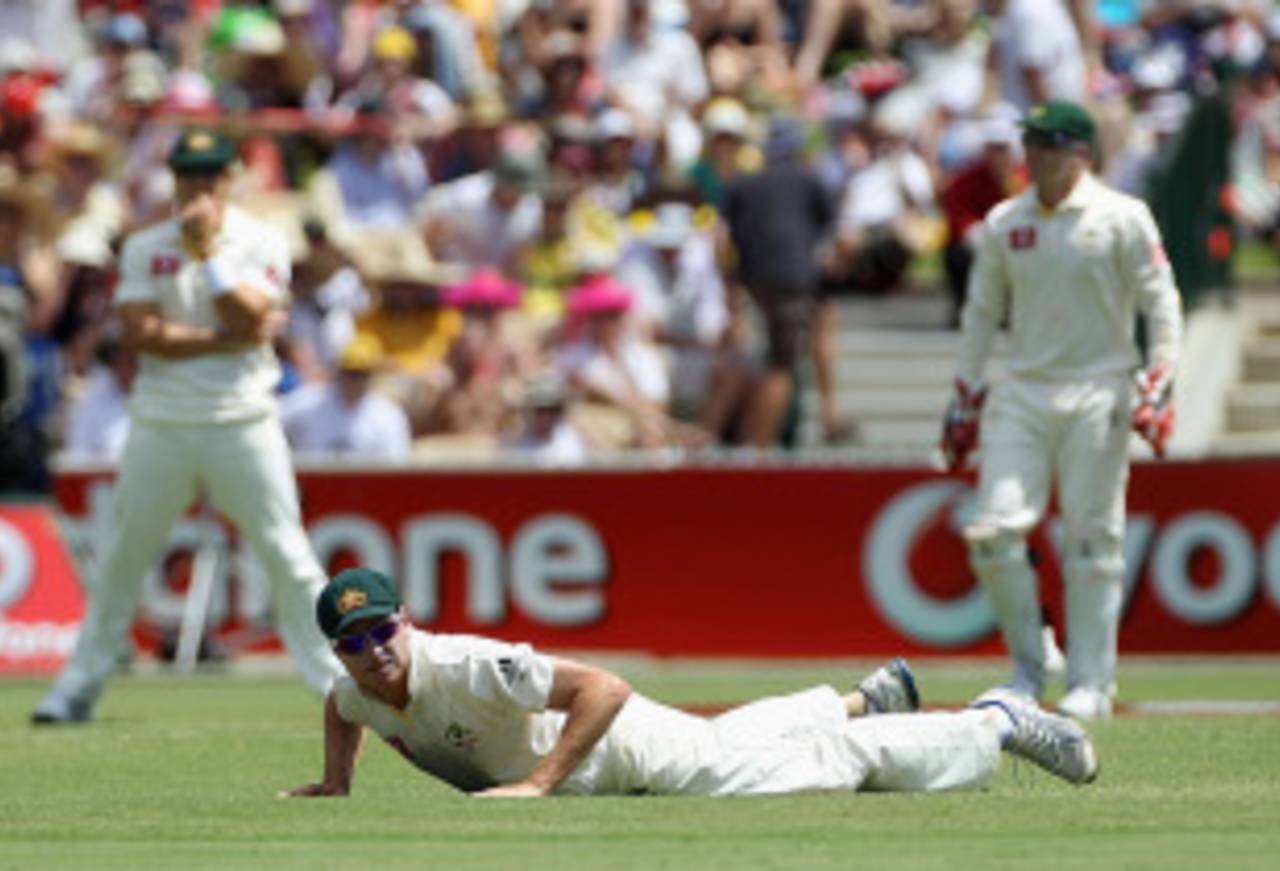Give me a time machine and a choice – one match, one moment, one ball – and I’d say take me to Old Trafford, mid-afternoon, on the 26th day of July in 1902. Eight runs to win, two wickets in hand, and England’s Dick Lilley hit Hugh Trumble high and to leg. Stationed on the boundary rope, Clem Hill sighted it early. No hope of a catch. But perhaps he could save a four or six? So he ran and kept running, 25 yards, until without breaking stride he sort of half dived, half flew, two legs horizontal behind him and one hand outstretched in front. Over to Clem: “Nobody was more astonished than I … The ball had stuck. I could hardly realise I had made the catch. I was the proudest man on the ground.”
Whether cricketers bat and bowl better than they used to is a matter of constant conjecture. But fielding, it is reckoned, that is definitely superior. You hear this said with some certainty. Yet out of all cricket’s elements, here we have least cause for certainty. There are no averages to guide us, no meaningful statistics to look up. Noughts by batsmen and 0-for-100s by bowlers live on naked and forever in old Bill Frindall scorebooks. Fieldsmen’s dropped catches are no sooner spilt than forgotten.
All we have to go on is what our eyes see: men helter-skeltering after balls that in days of yore might have excited a polite waddle. Yet our eyes tell us conflicting things, too. Today, for instance, they saw Xavier Doherty tackle a straightforward run-out opportunity with the sangfroid of a child drunk on Fanta playing pin the tail on the donkey. Ten minutes later the ball floated towards Mike Hussey in the gully.
In Cricket the Australian Way, Bob Cowper had some sage advice for the young and developing fieldsman. “Watch the ball carefully, right into your hands, head held still …” – and on that score, Hussey was pretty much OK, but then Cowper went on – “… body relaxed and not over-tensed.”
Crouching, waiting, Hussey could not have looked more over-tensed had he been ordered to squeeze the dregs out of an empty toothpaste tube before the ball got to him. Finally the ball did get to him. It squirted through his hands and between his legs for two runs.
The way a team fields says something about a team’s happiness. For fielding is one thing you do purely for one another’s benefit. It might be that Australia’s cricketers right now are too busy peering over each other’s shoulders to pay sufficient attention to the oncoming ball.
Beyond the here and now of Australia’s woes, a wider trend is discernible. Fielding is being treated as a defensive art, no longer a third element of attack, a matter of stopping balls rather than intercepting them. Selectors pick wicketkeepers – as Brad Haddin reminded us again – for their batting not their catching. Captains understock their slip cordons in favour of an extra run-saving position or three.
So when Kevin Pietersen arrived at the crease today, he calmly got off the mark with a single. How could he feel anything but calm? Only one slip had been posted, and no short leg. There seldom is a short leg. When there is he tends to be placed not in the batsman’s nostril zone but half a dozen feet deeper and the same distance squarer. It might nearly be time to coin a new position: not “short leg” anymore, but “silly square leg”. And silly is the word for it.
Some 108 years ago, Clem Hill’s catch swung a match and a series, England’s last wicket collapsing four runs later and Australia hanging on to win by three. “Oh, Clem,” gasped Dick Lilley, “what a bally fluke!”
But here’s a thing about luck: in fielding, as in most of life’s endeavours, you make your own.
Christian Ryan is a writer based in Melbourne. He is the author of Golden Boy: Kim Hughes and the Bad Old Days of Australian Cricket and, most recently Australia: Story of a Cricket Country
